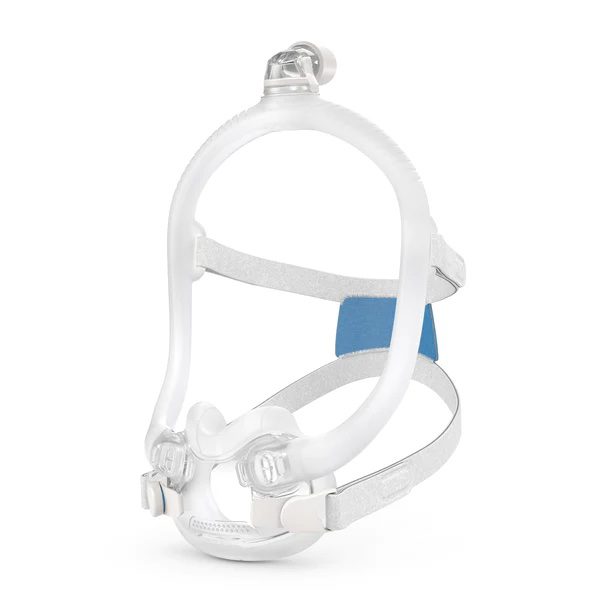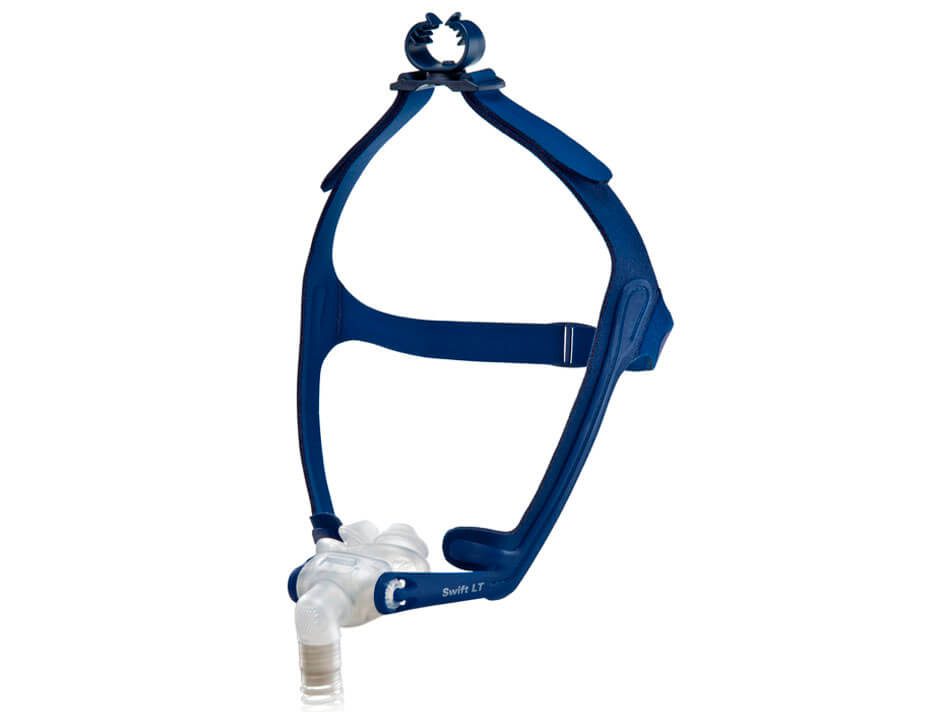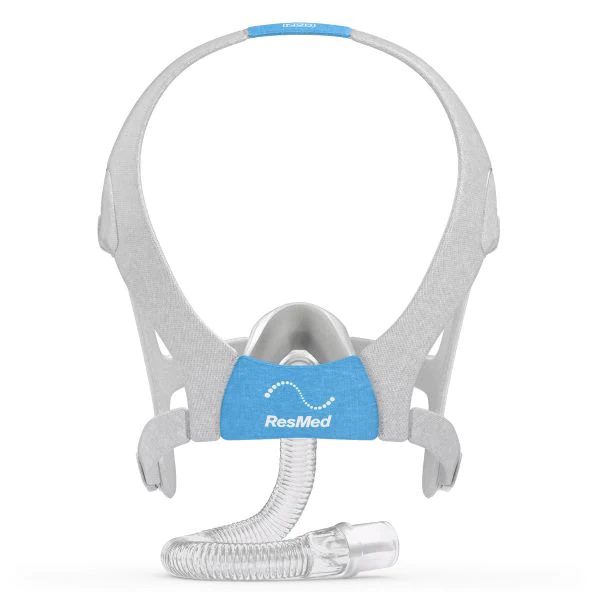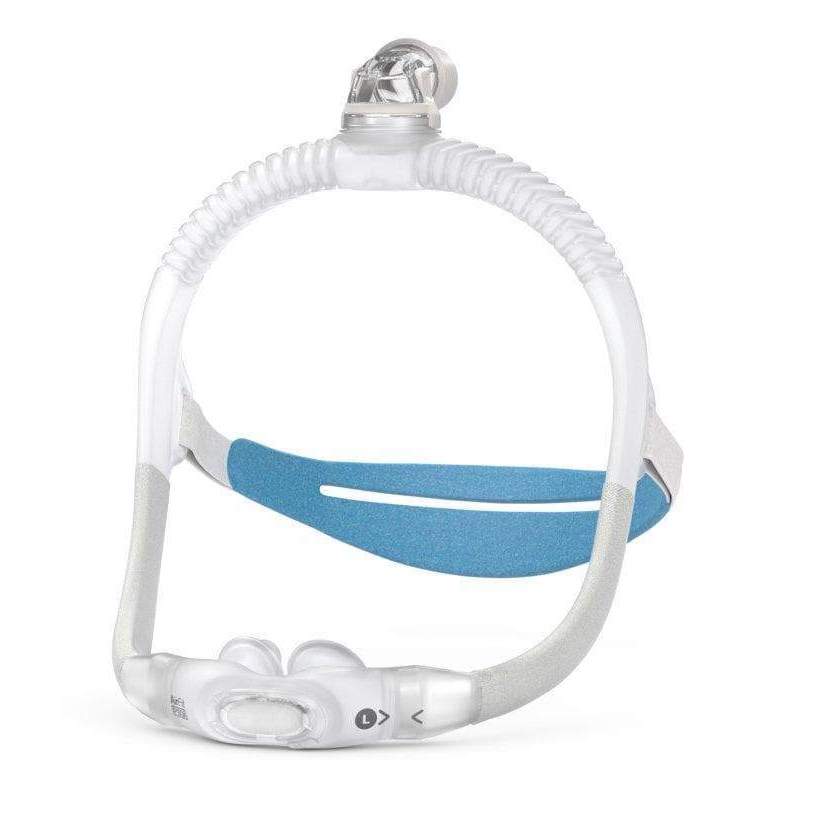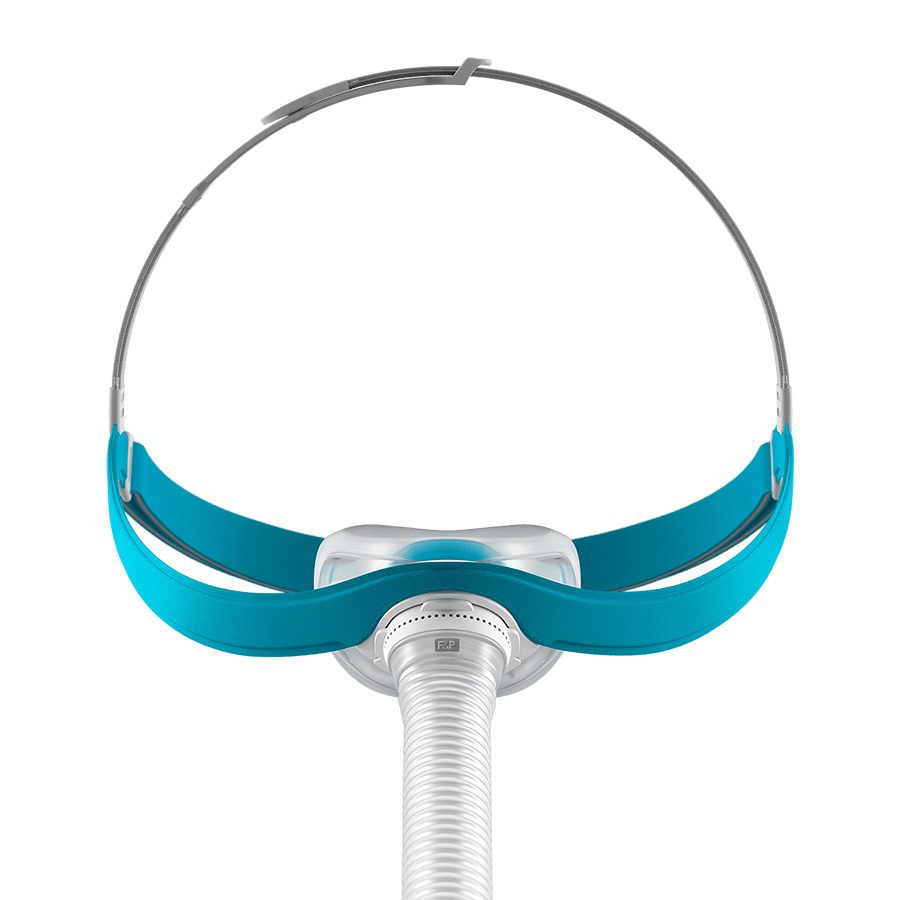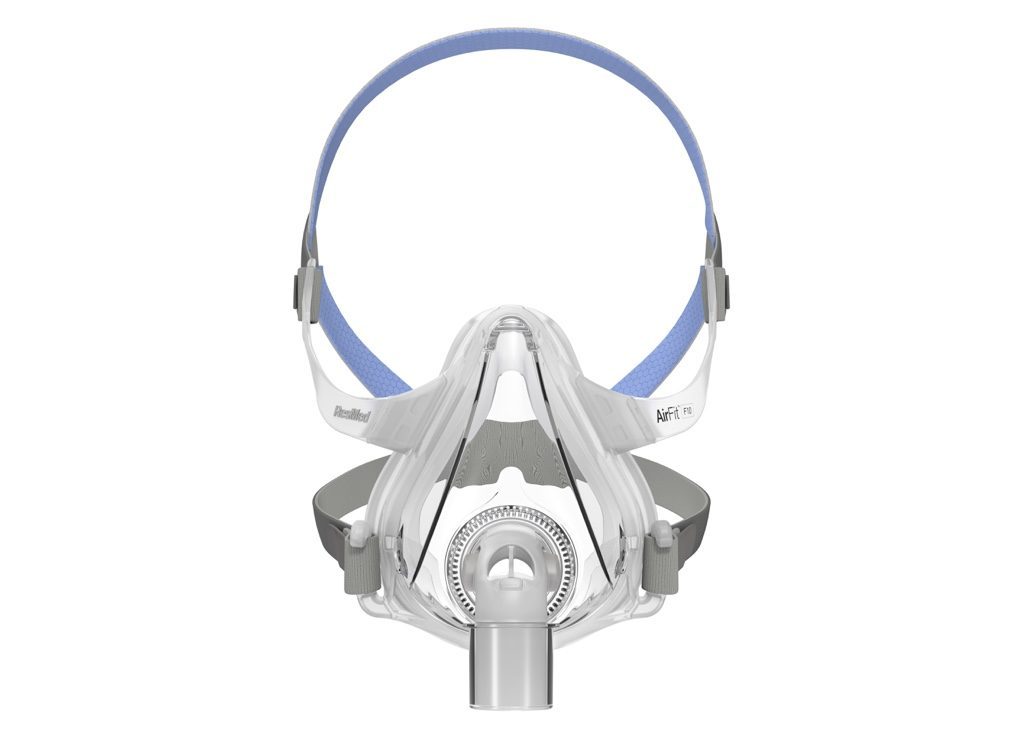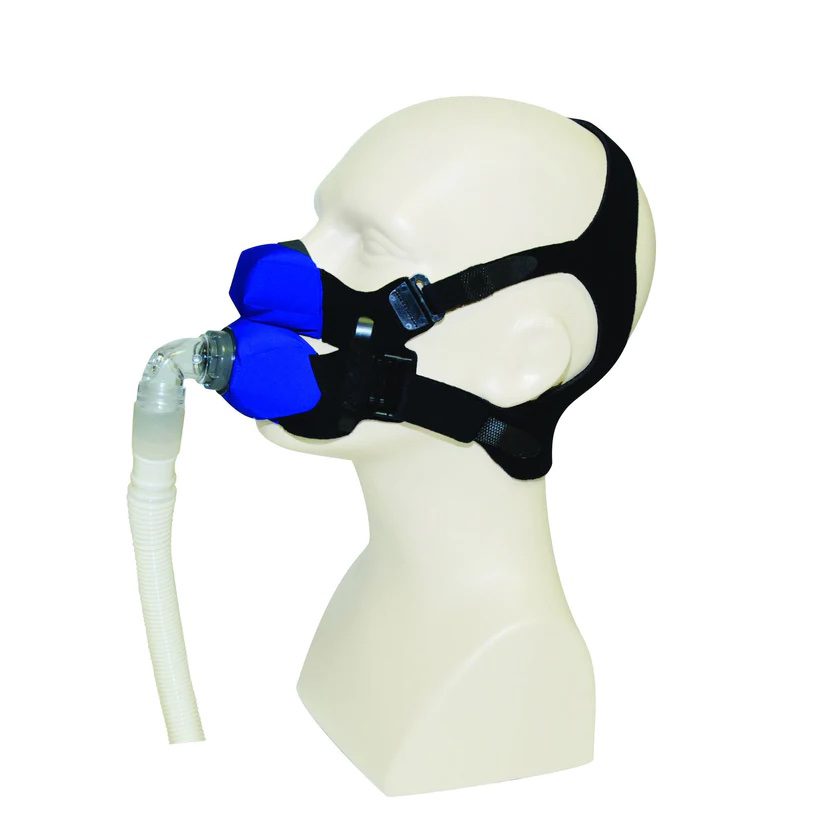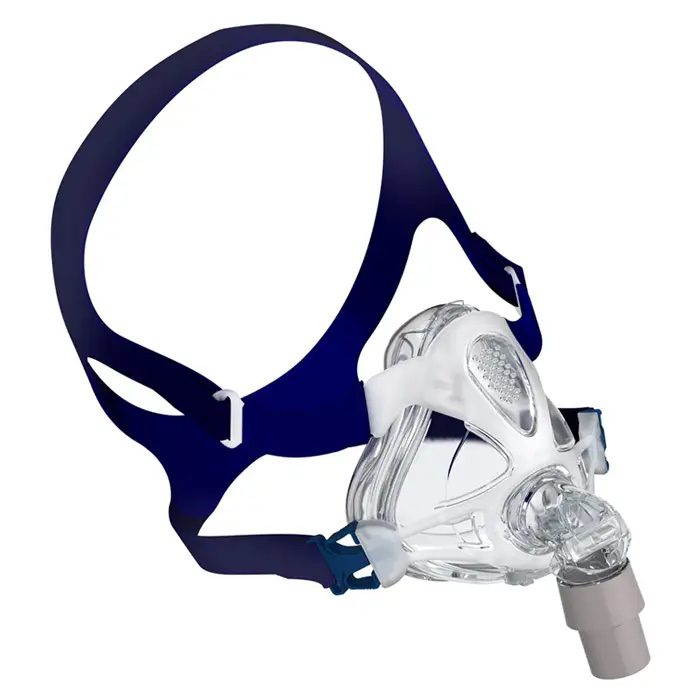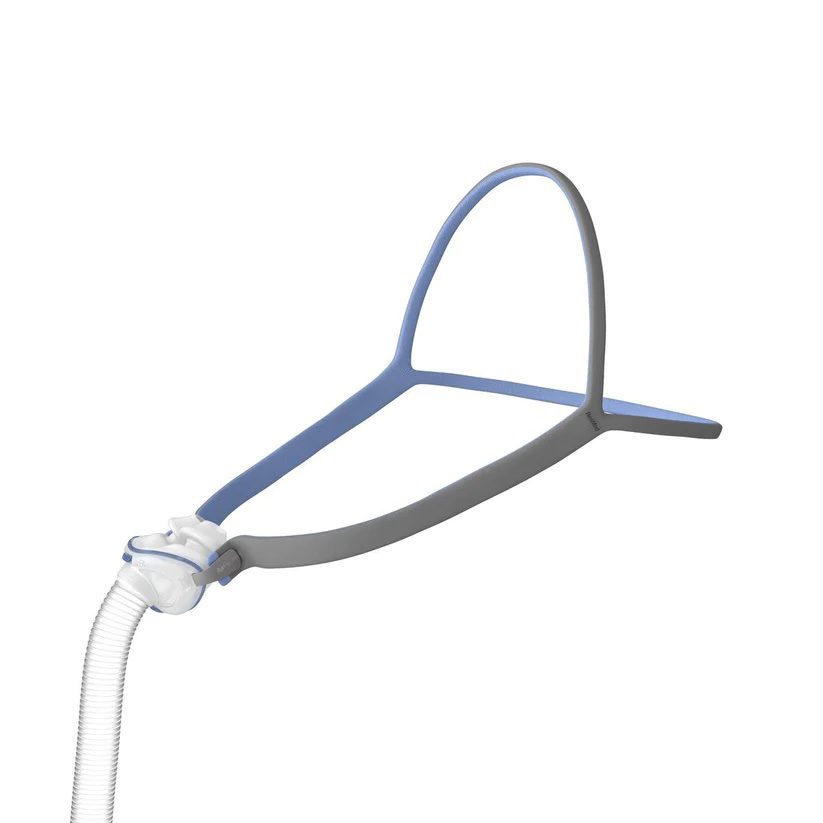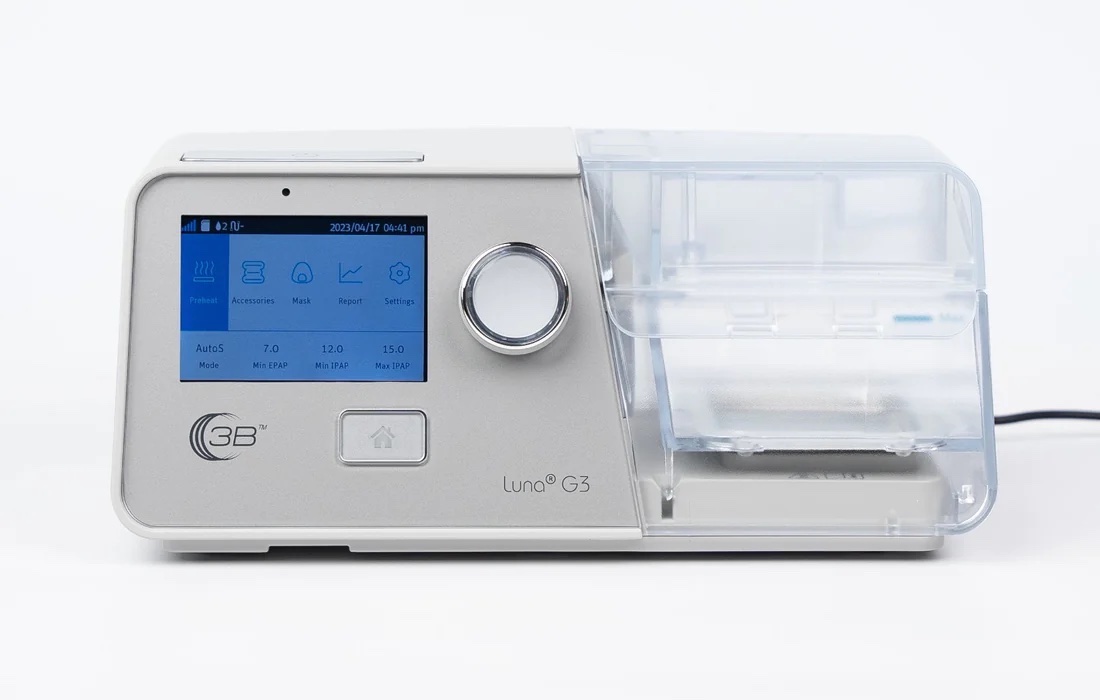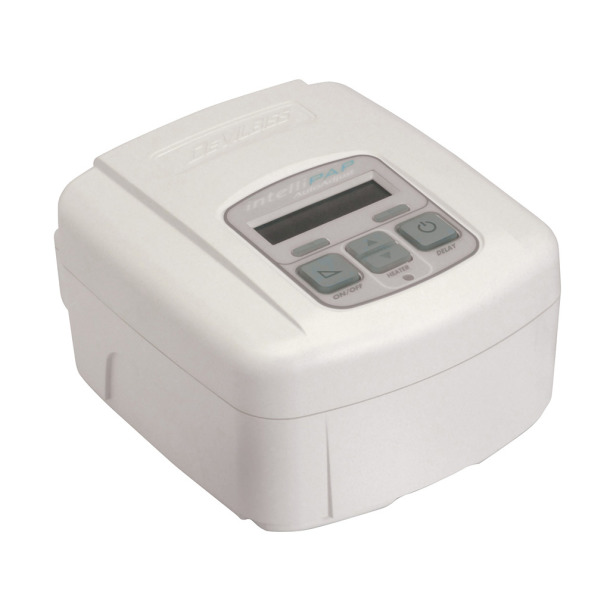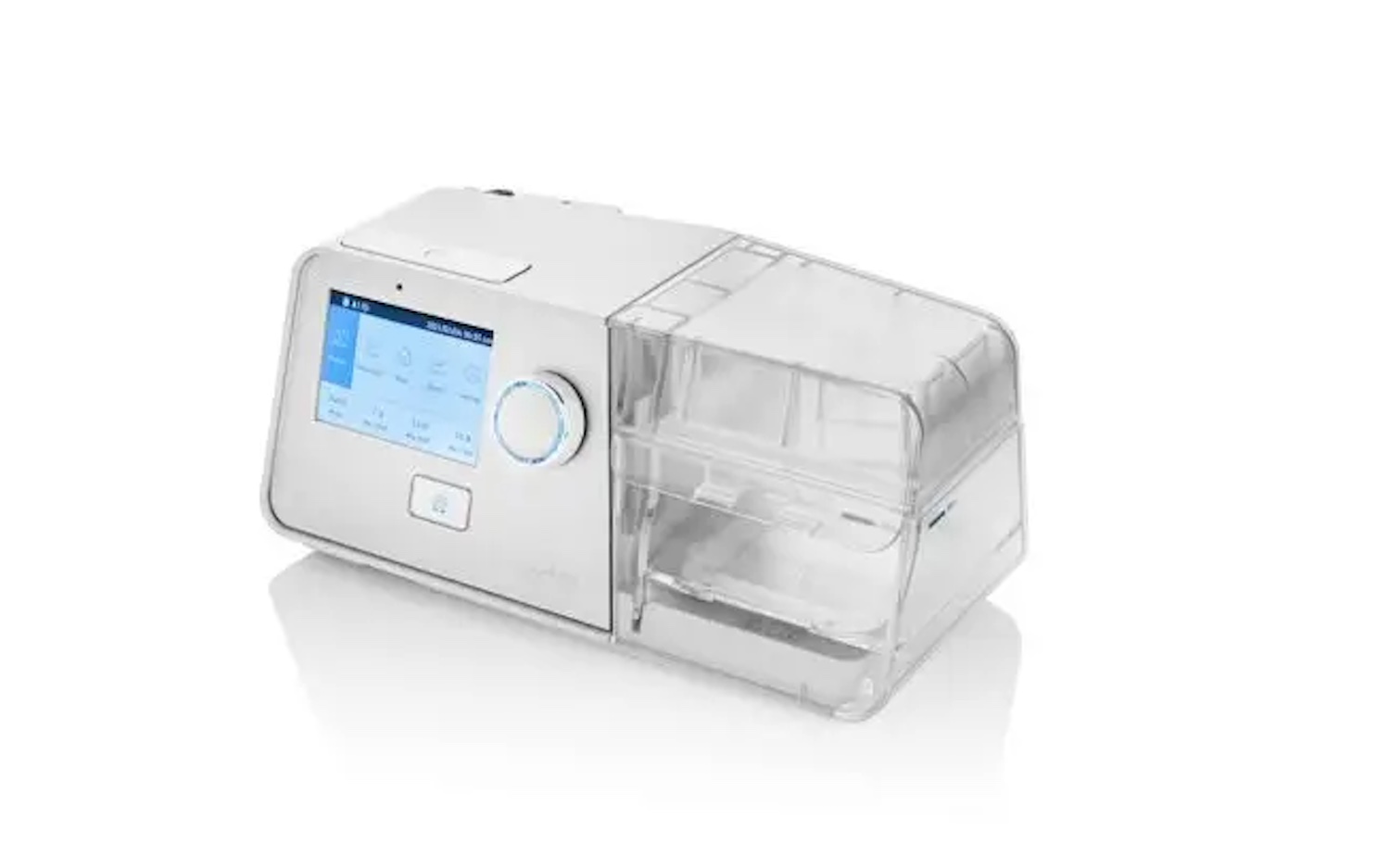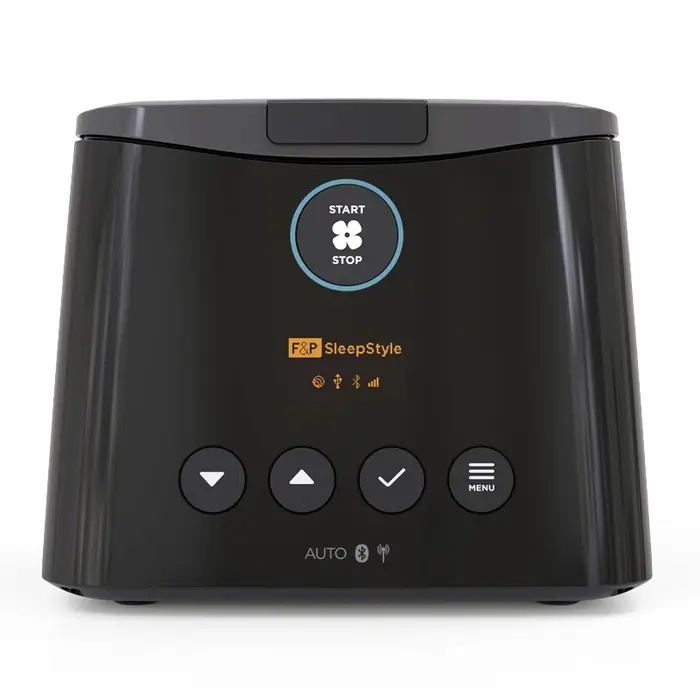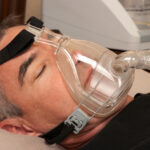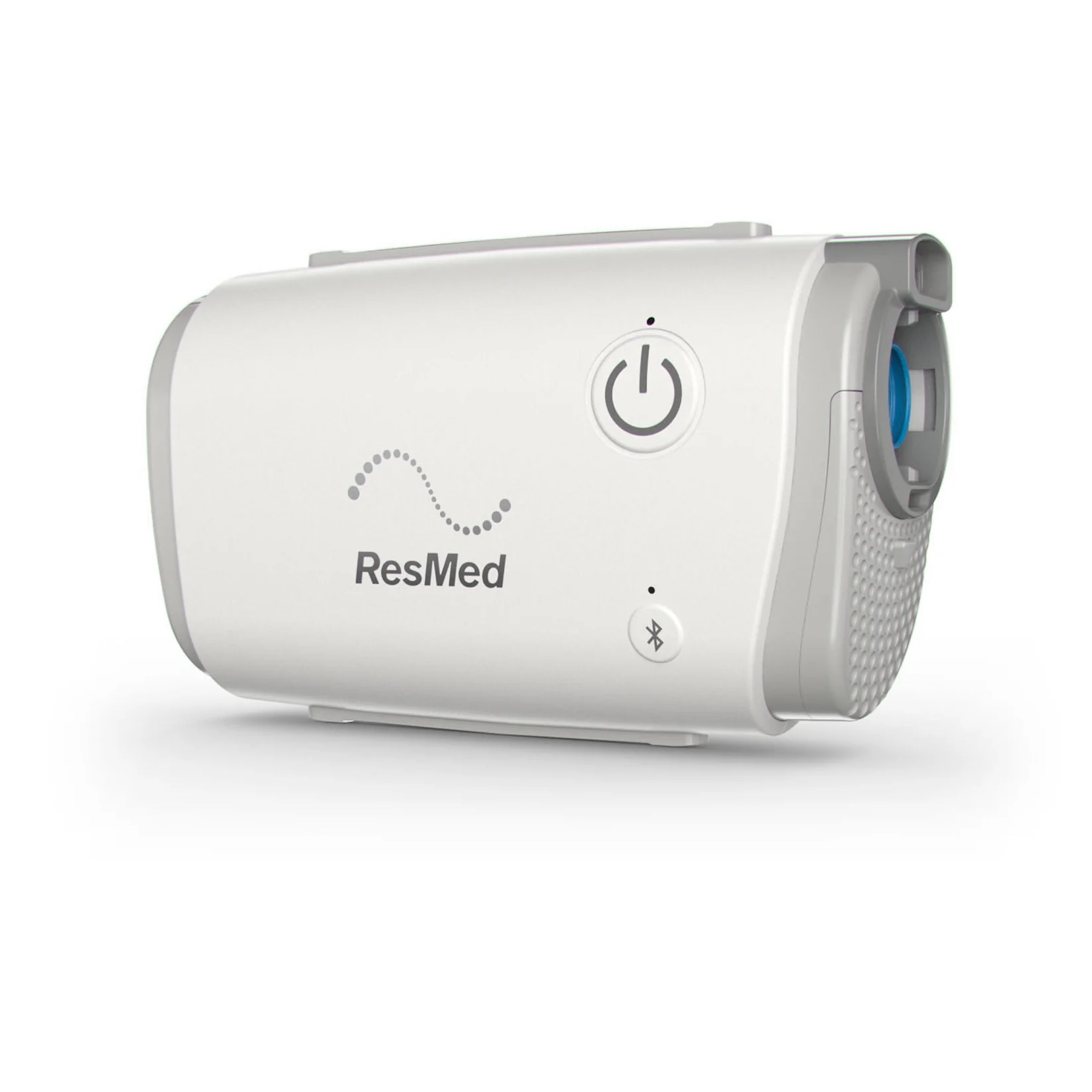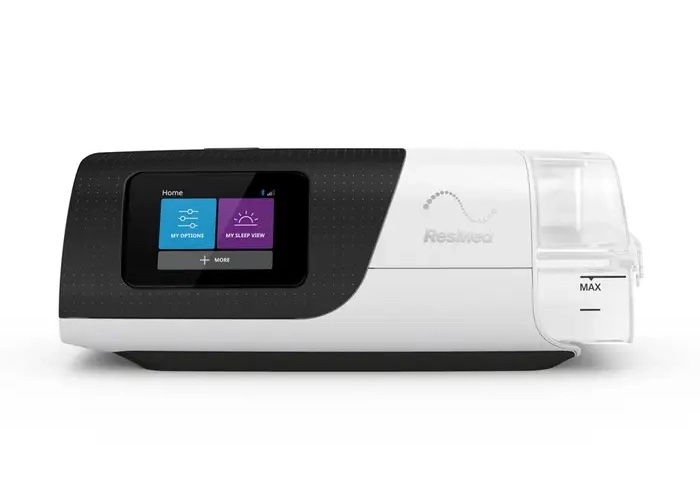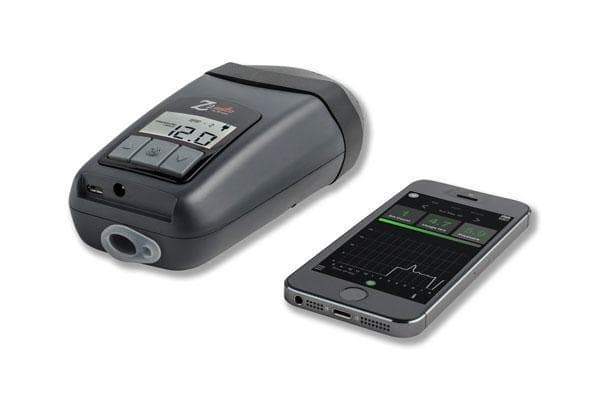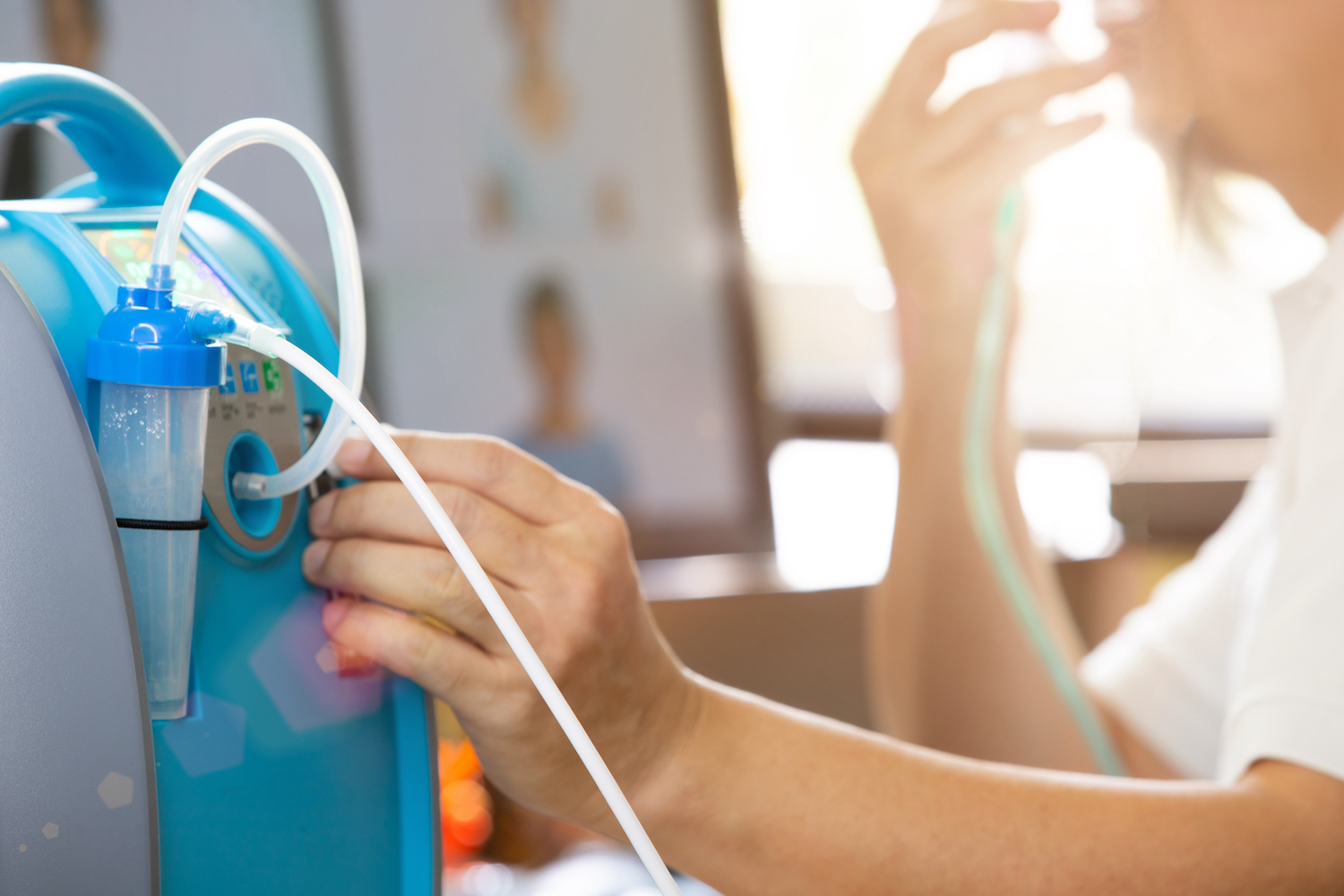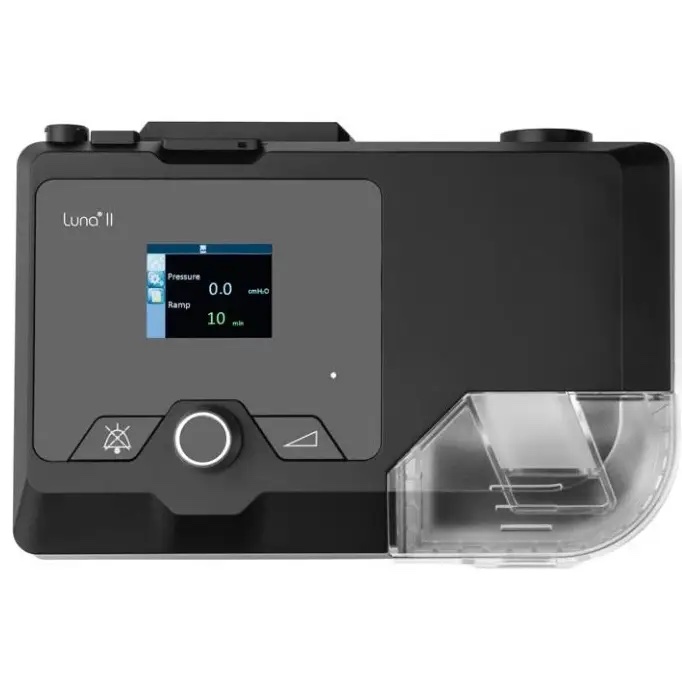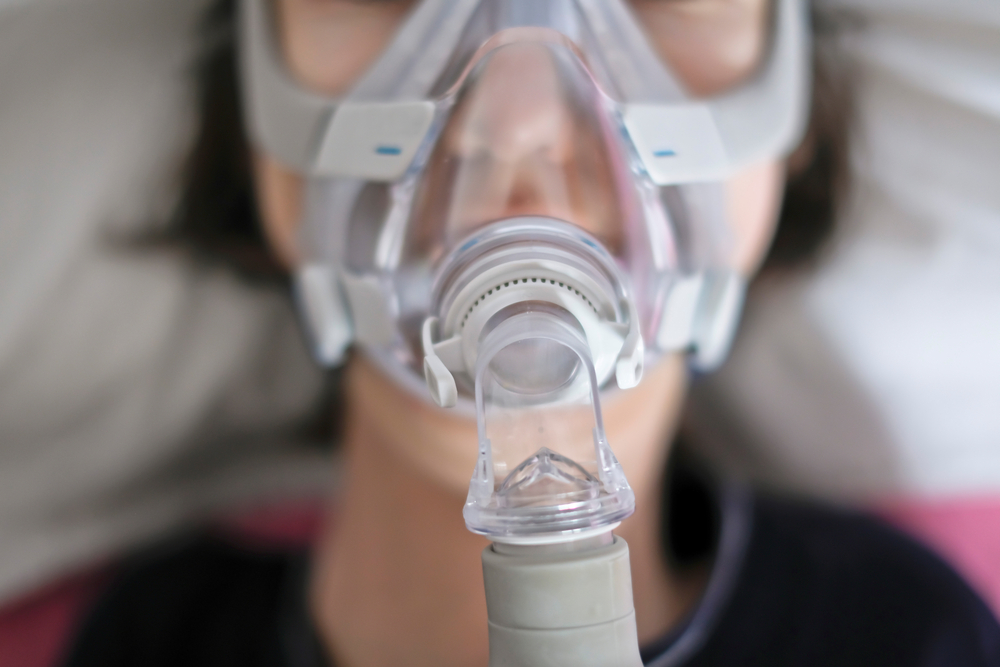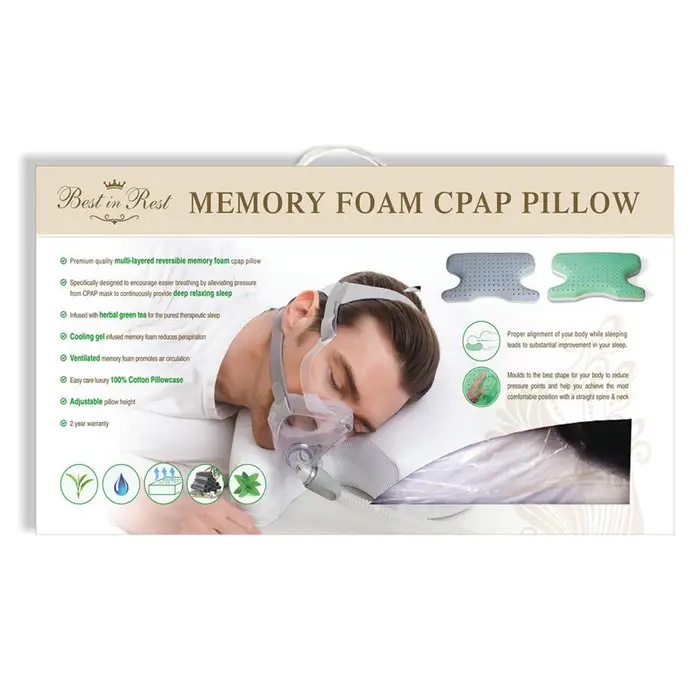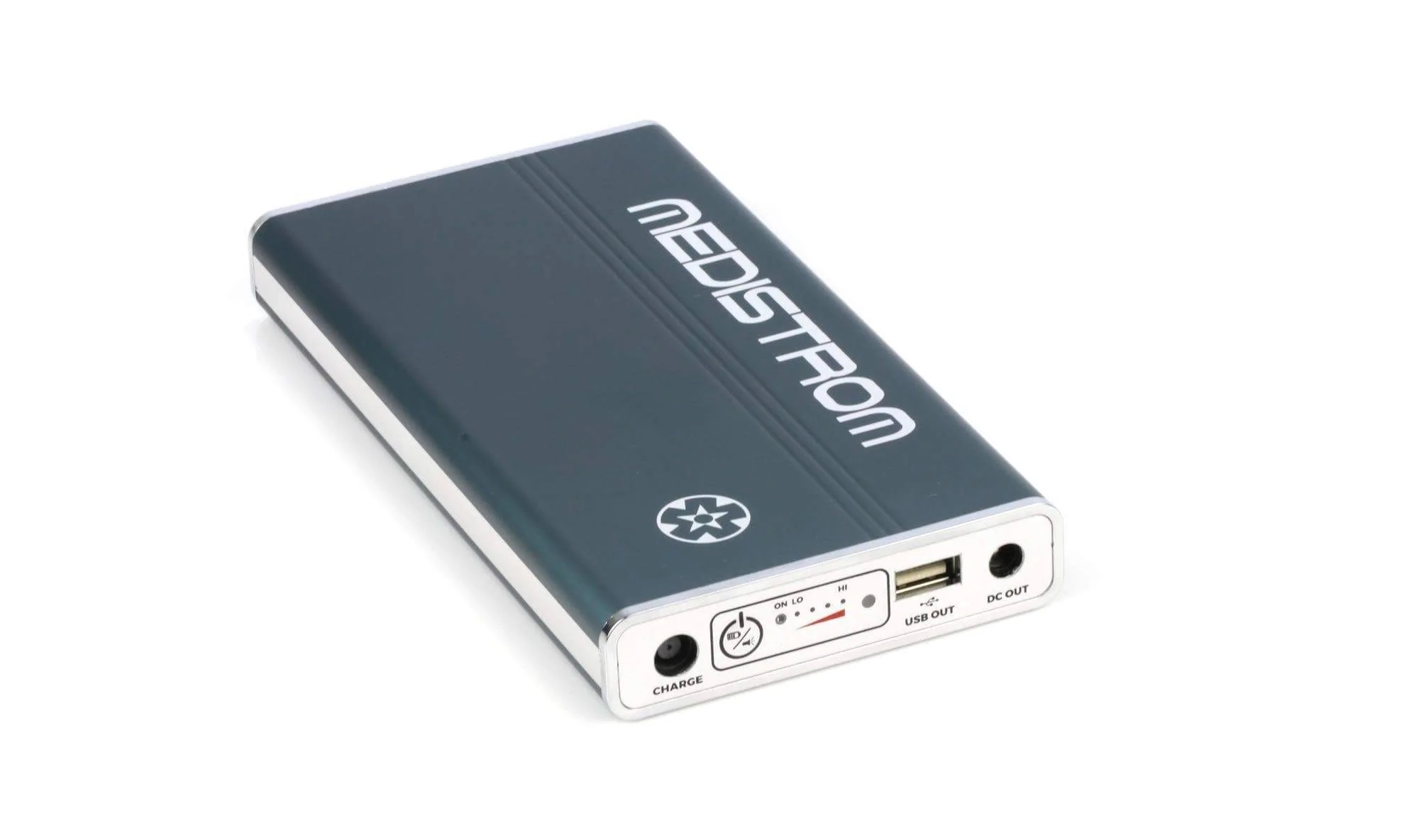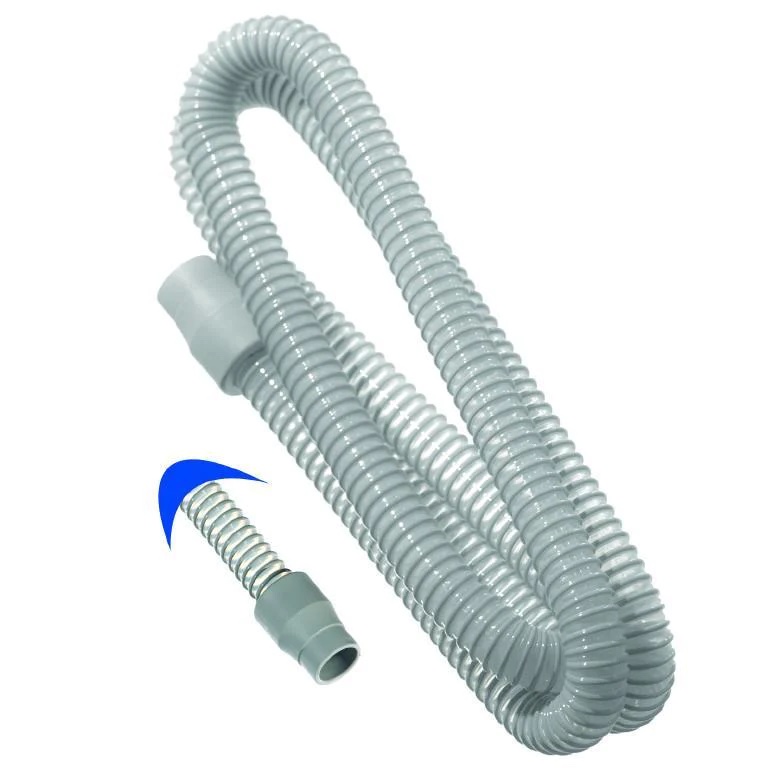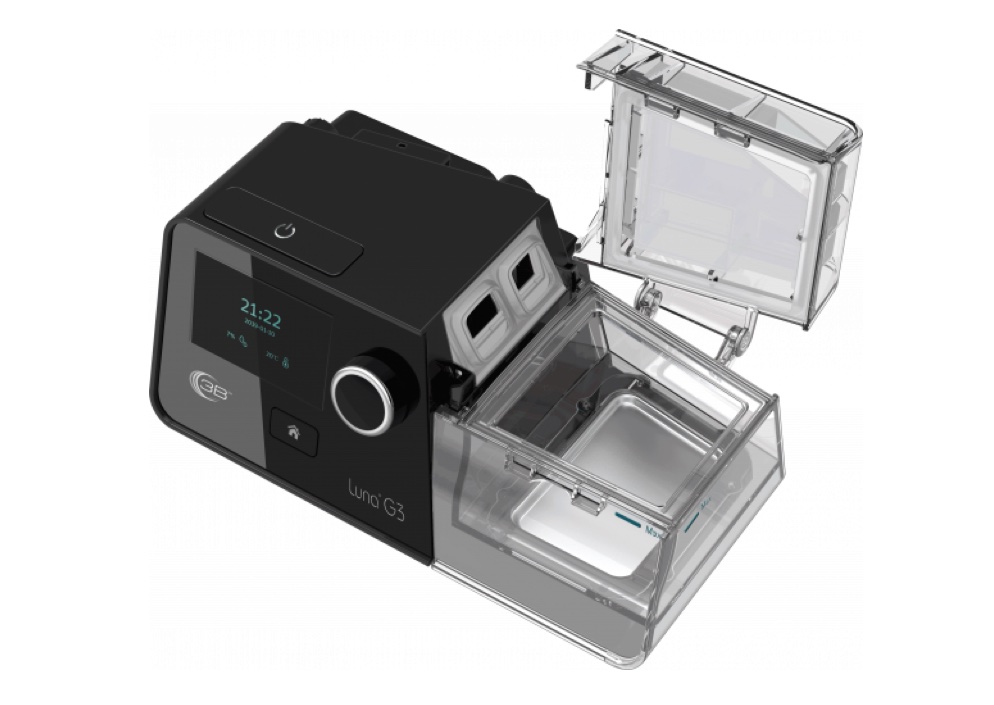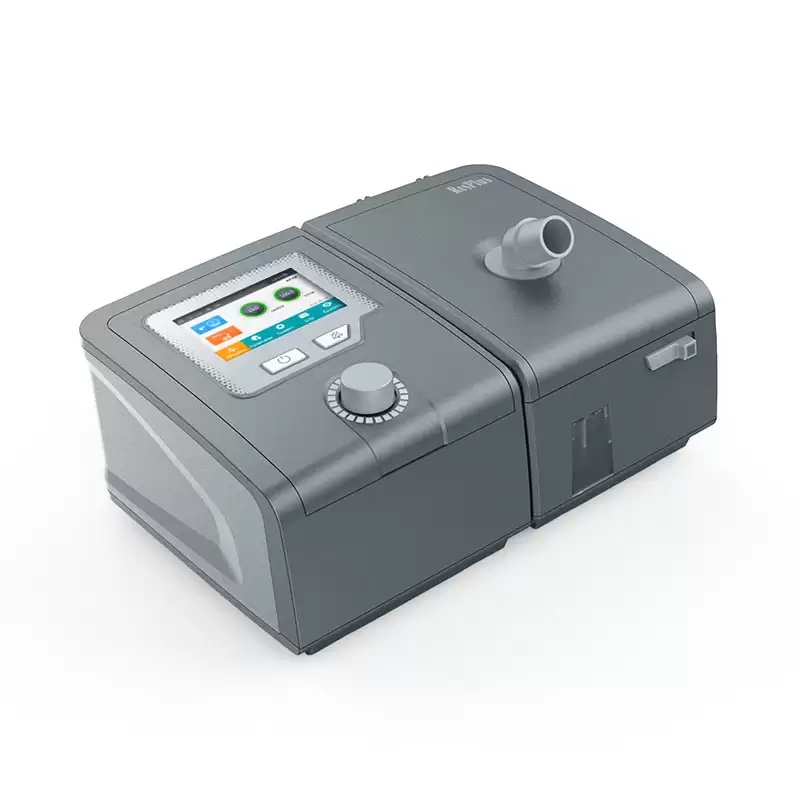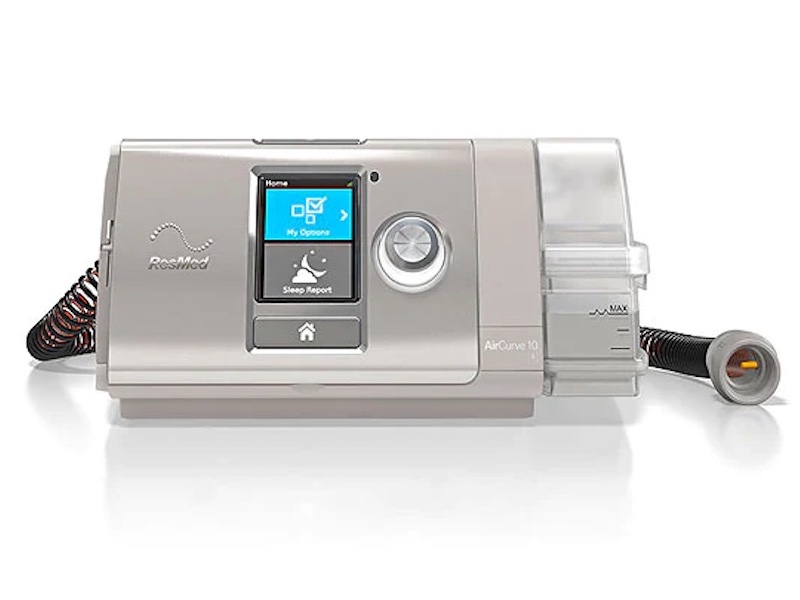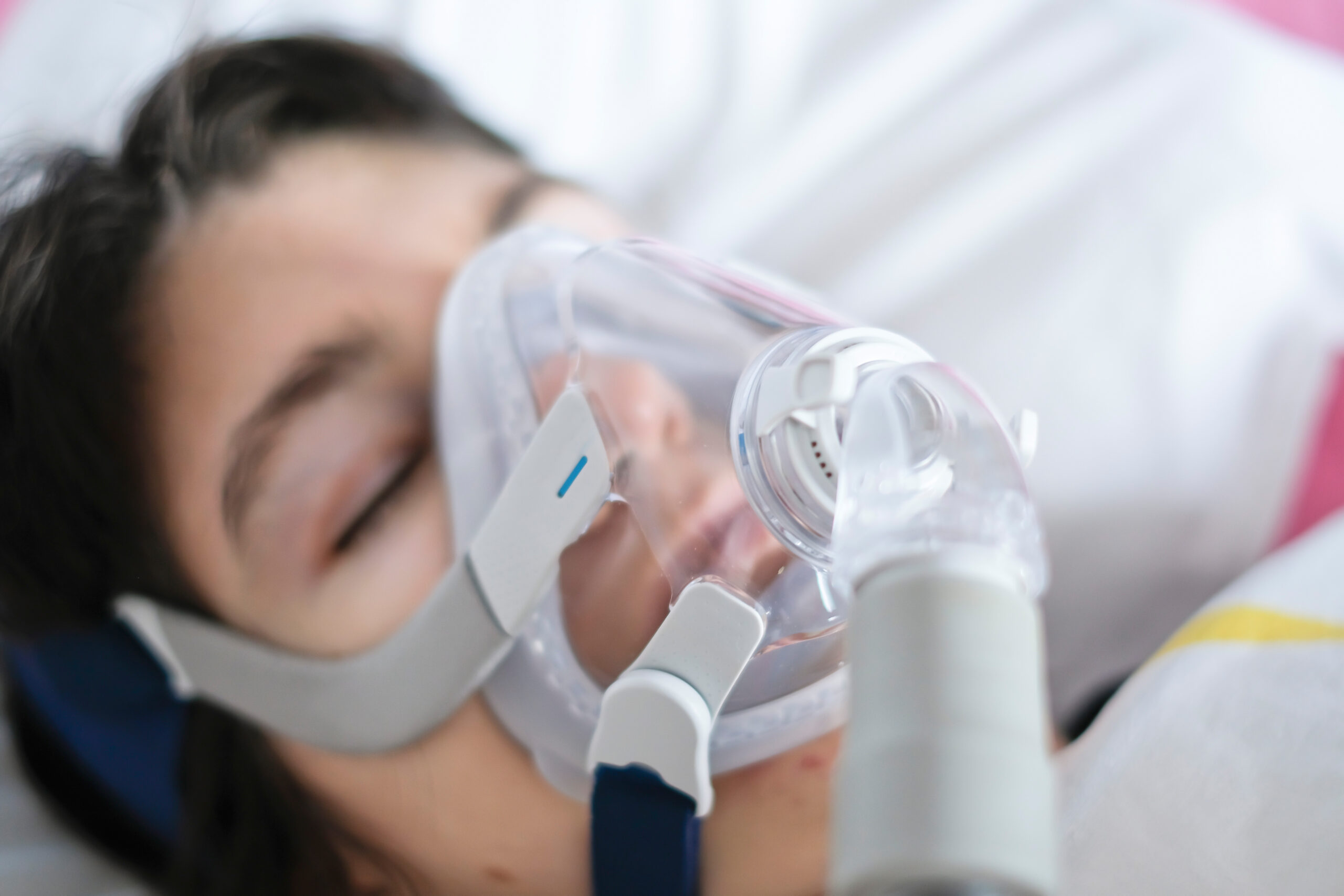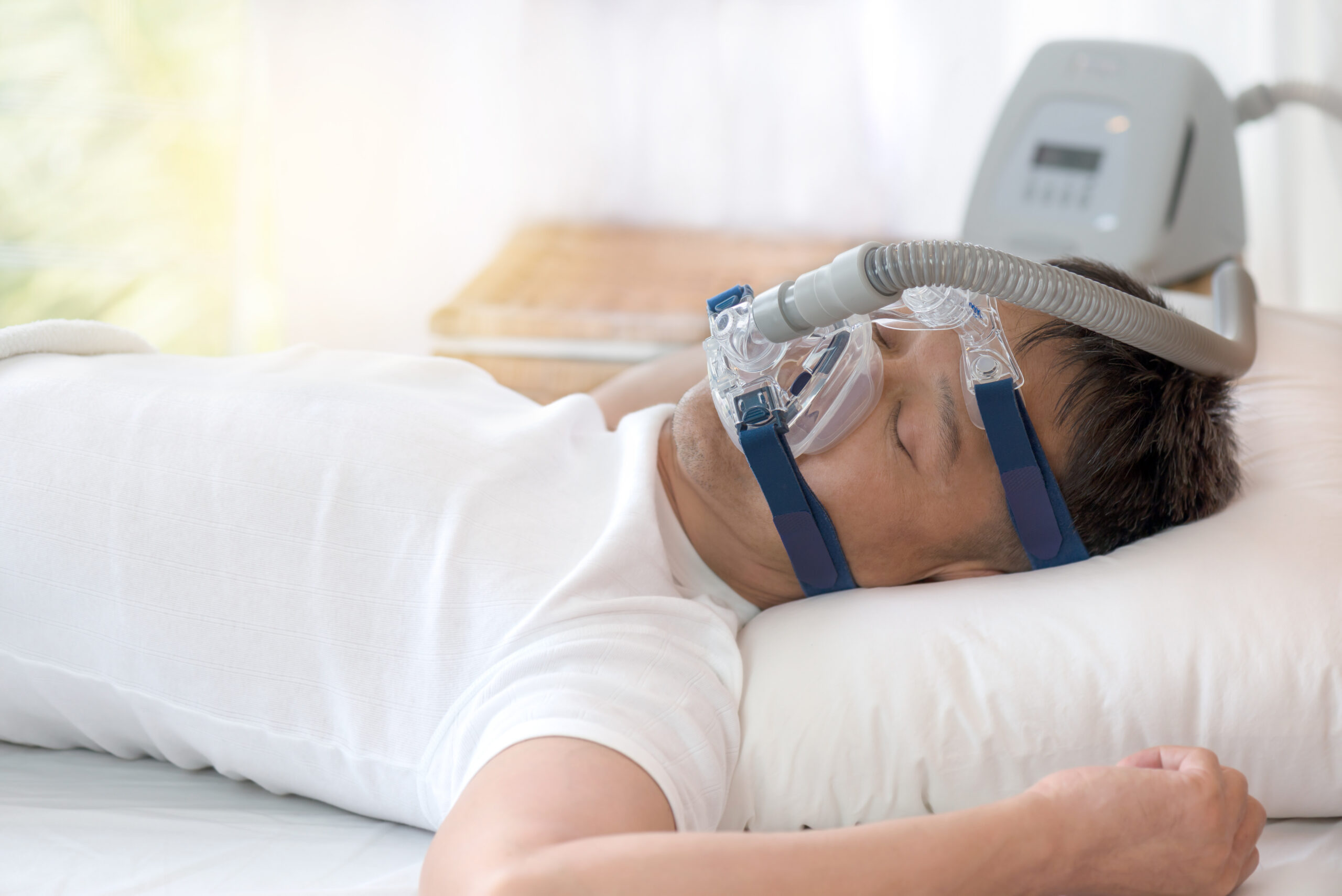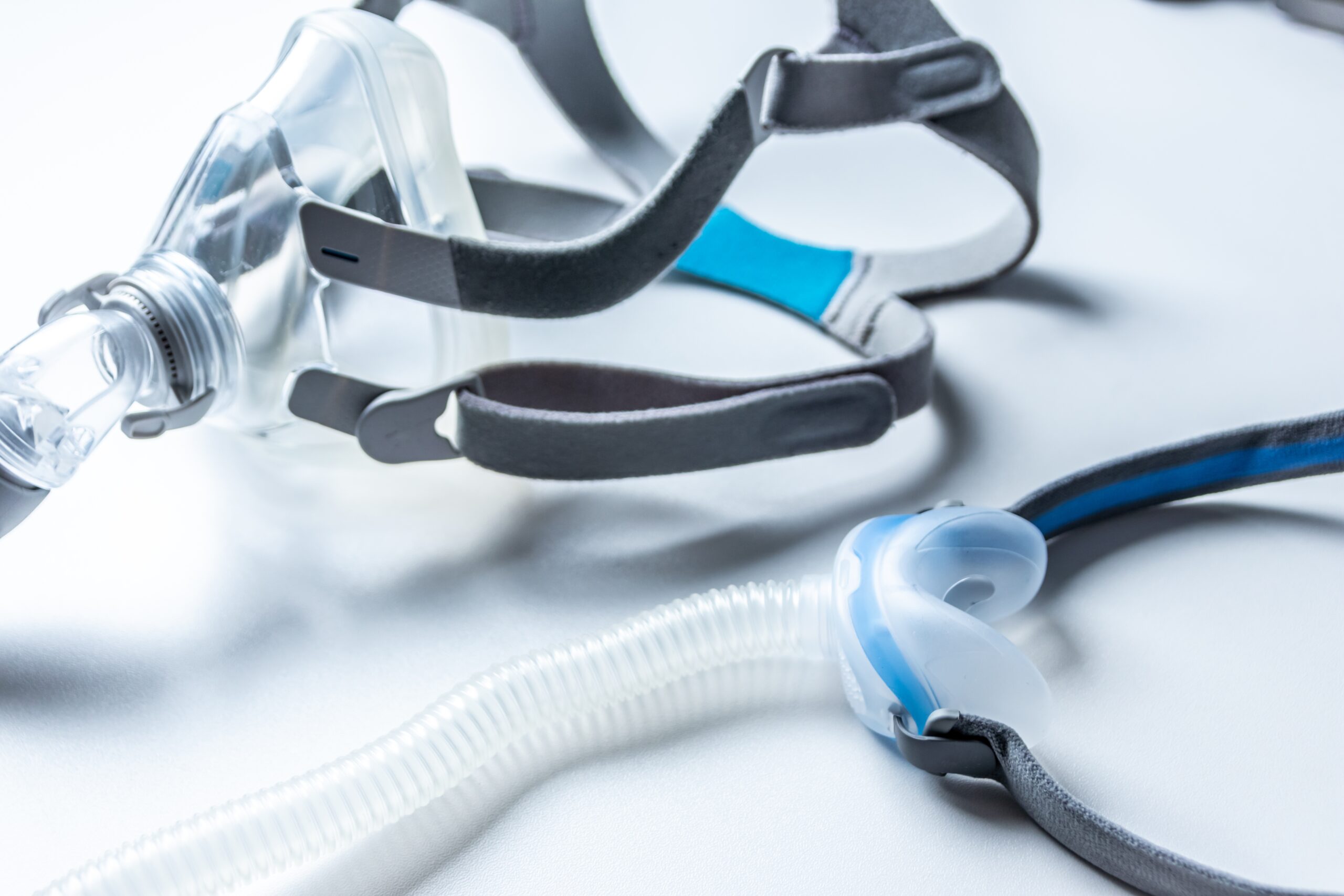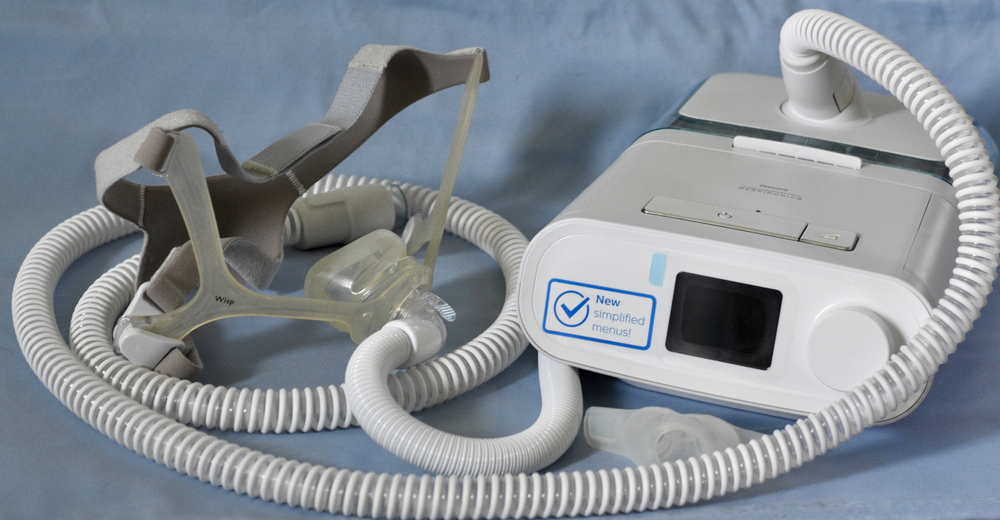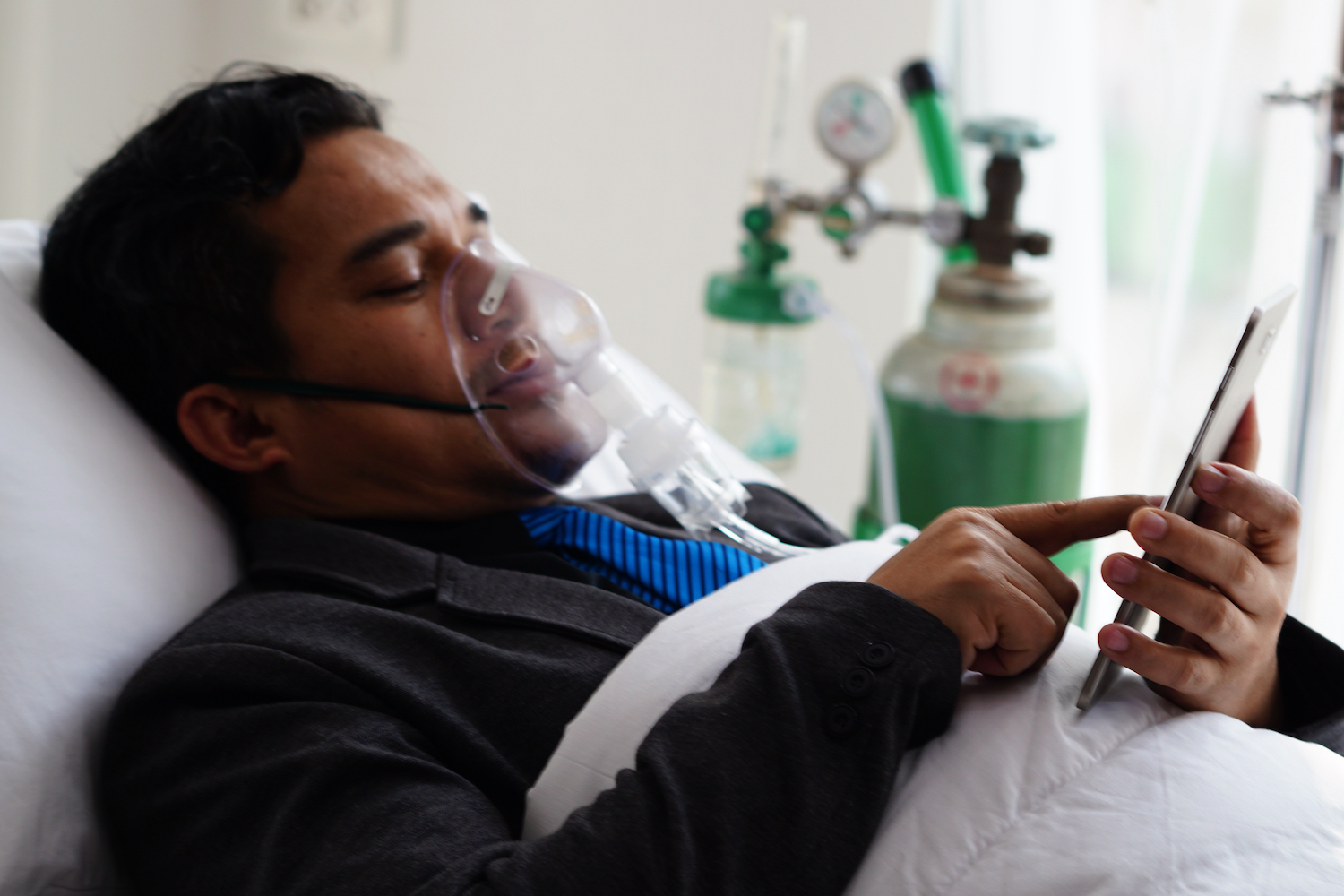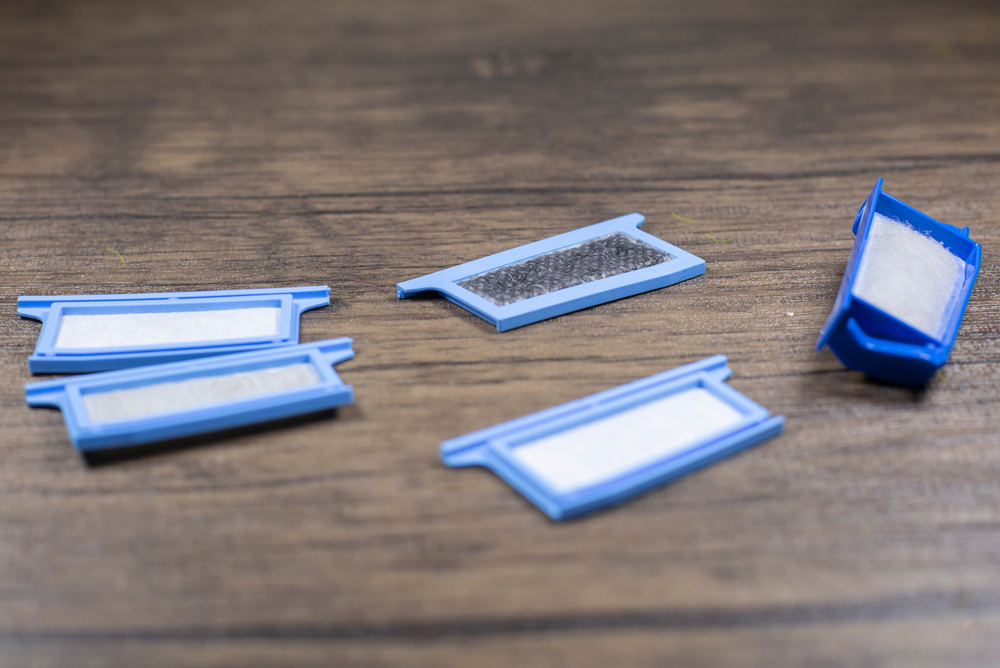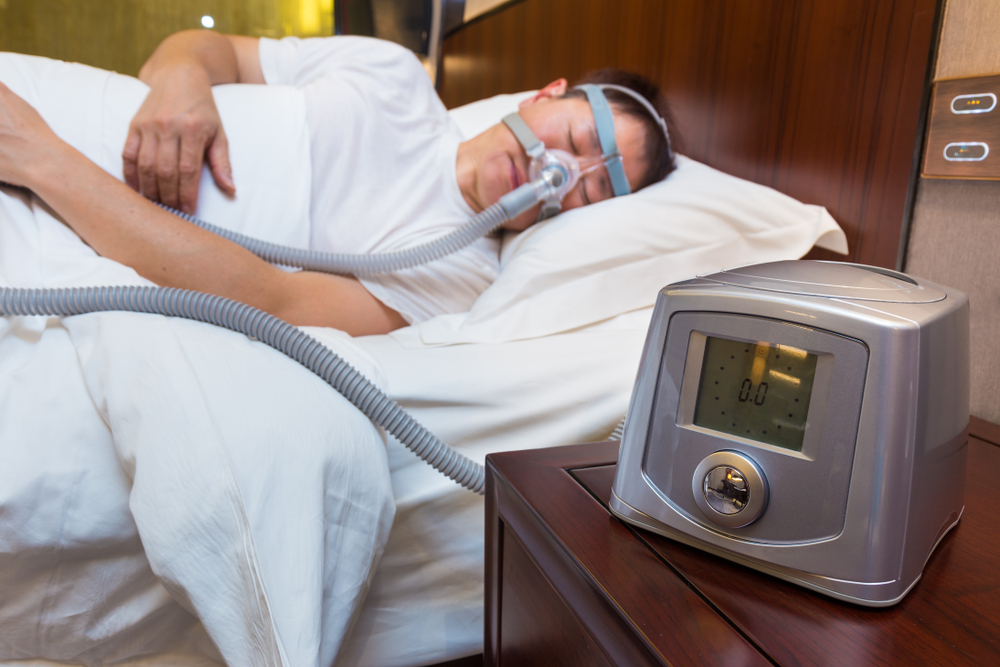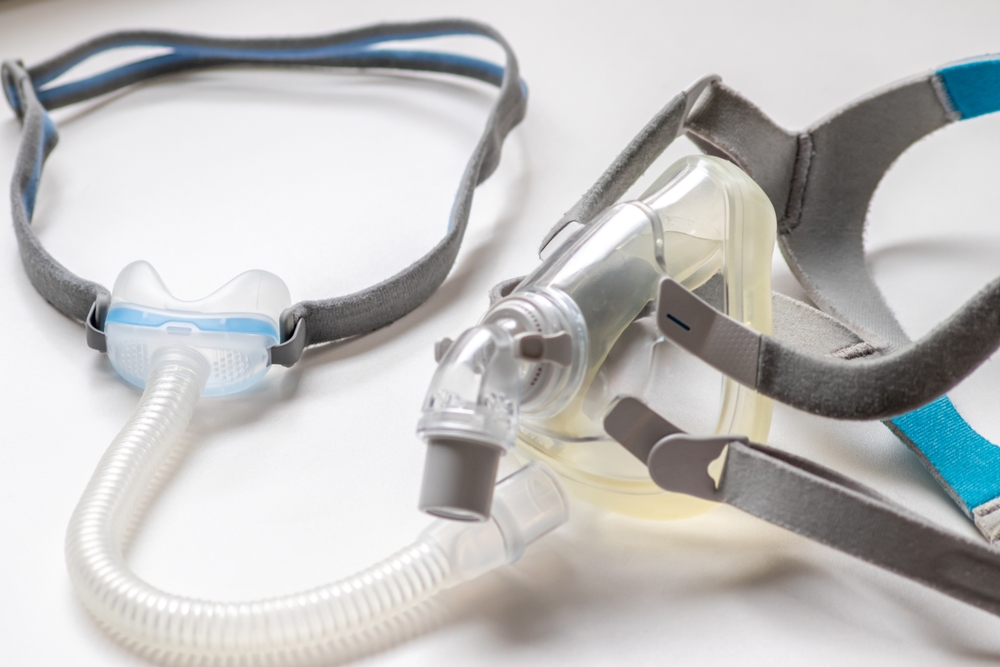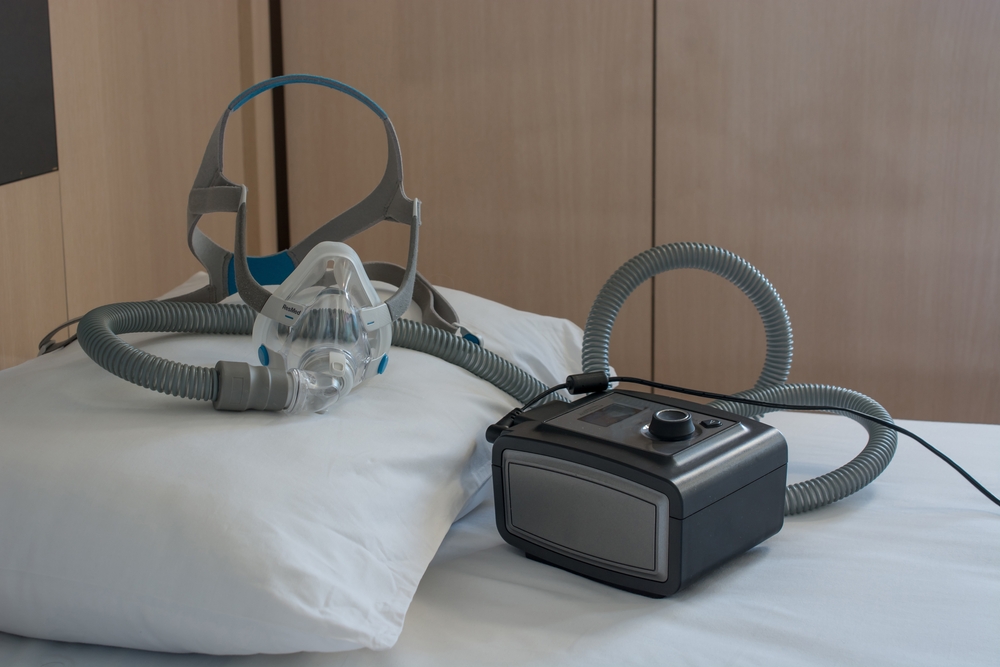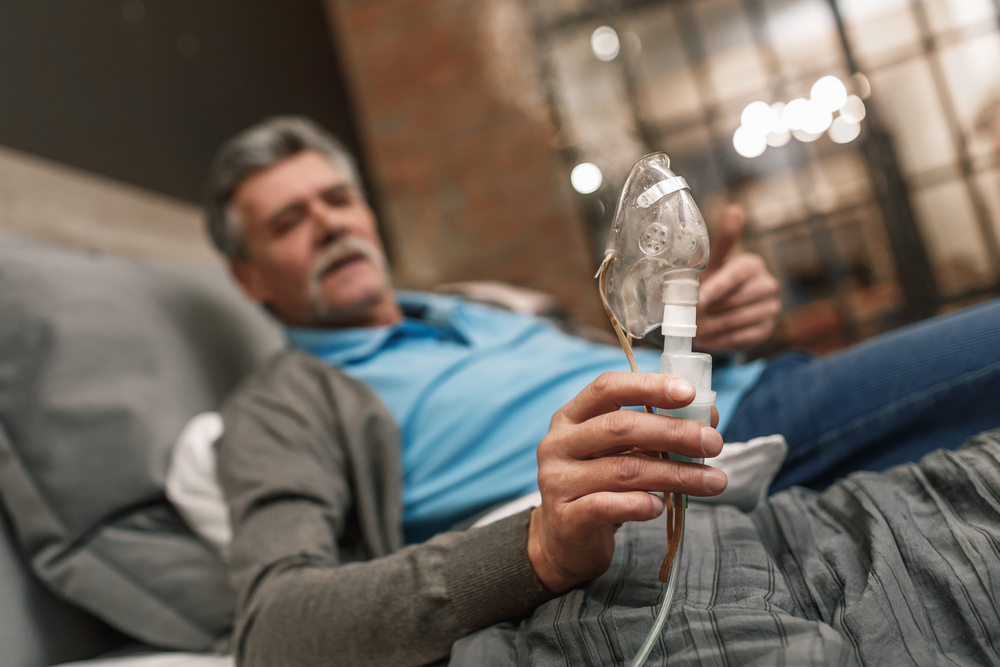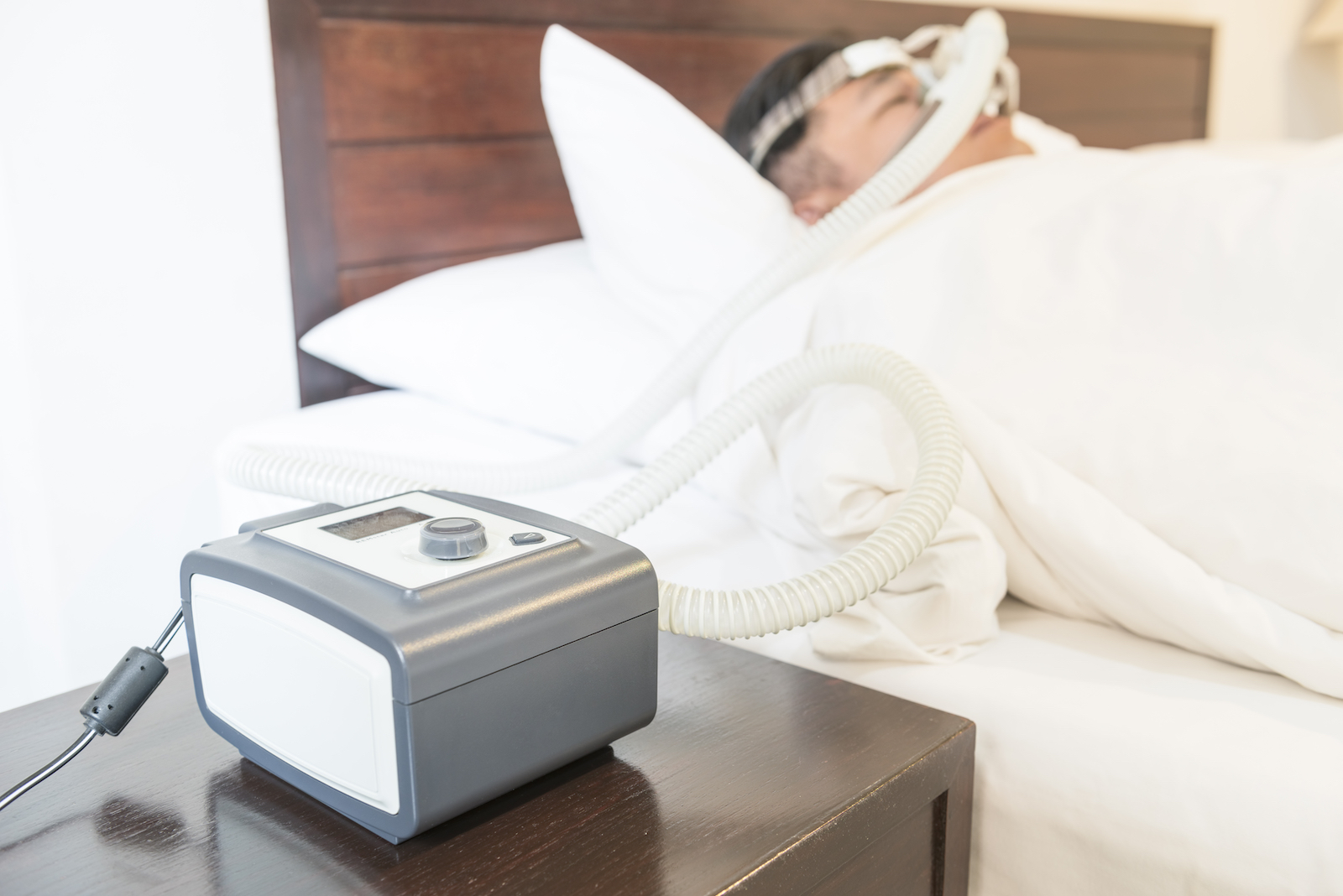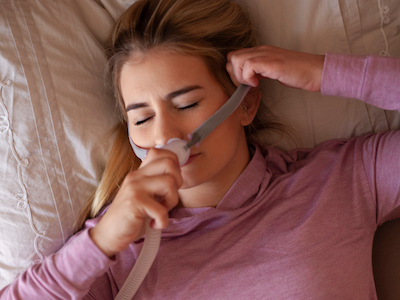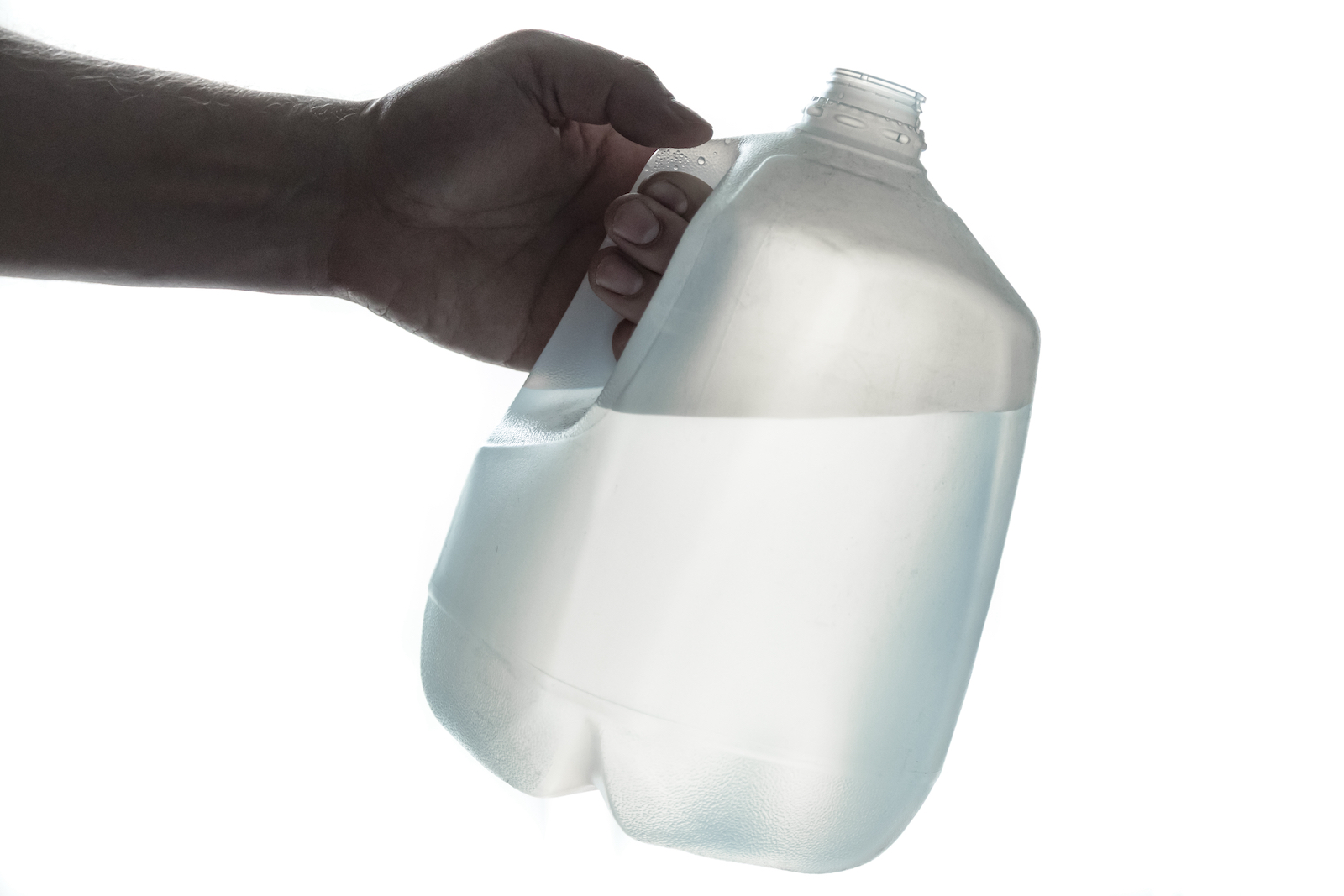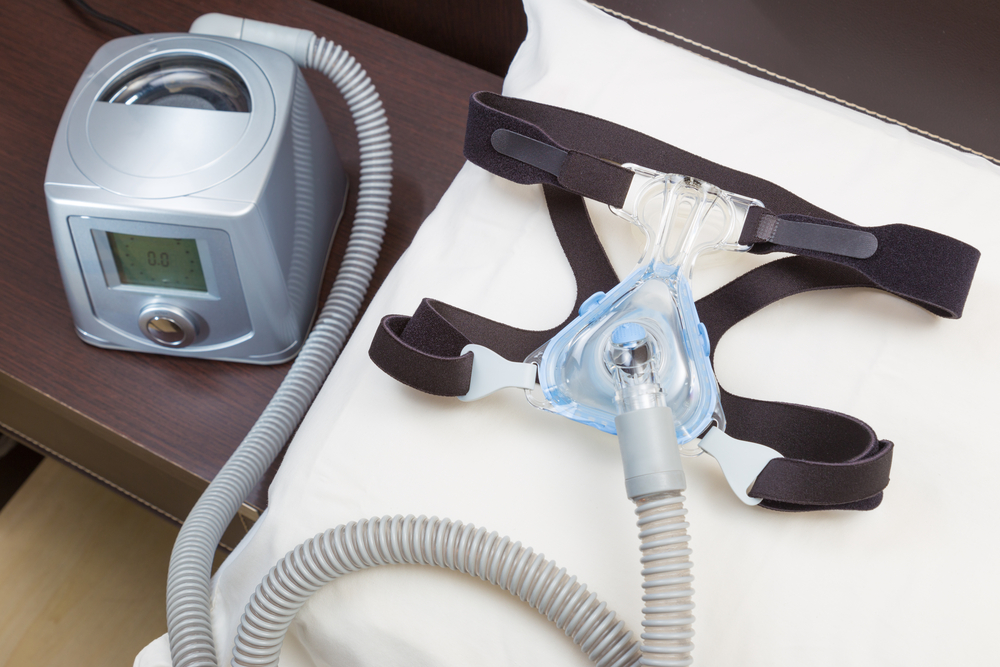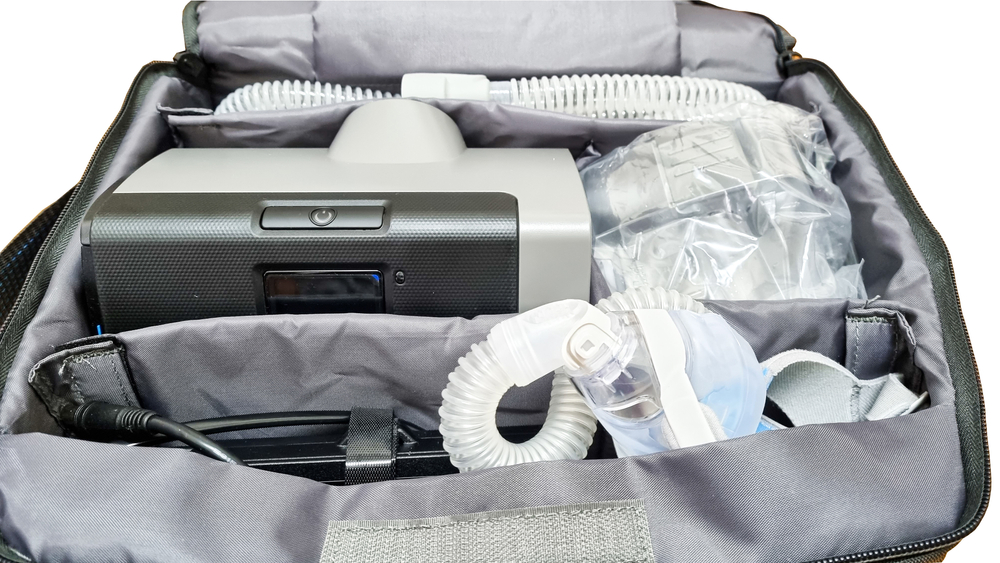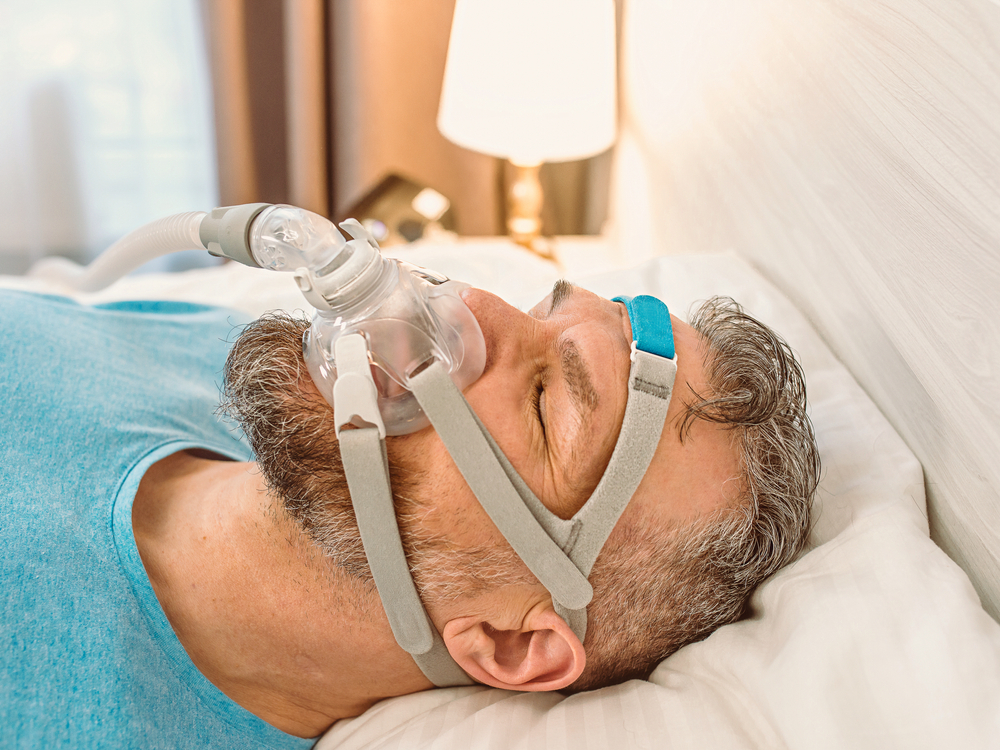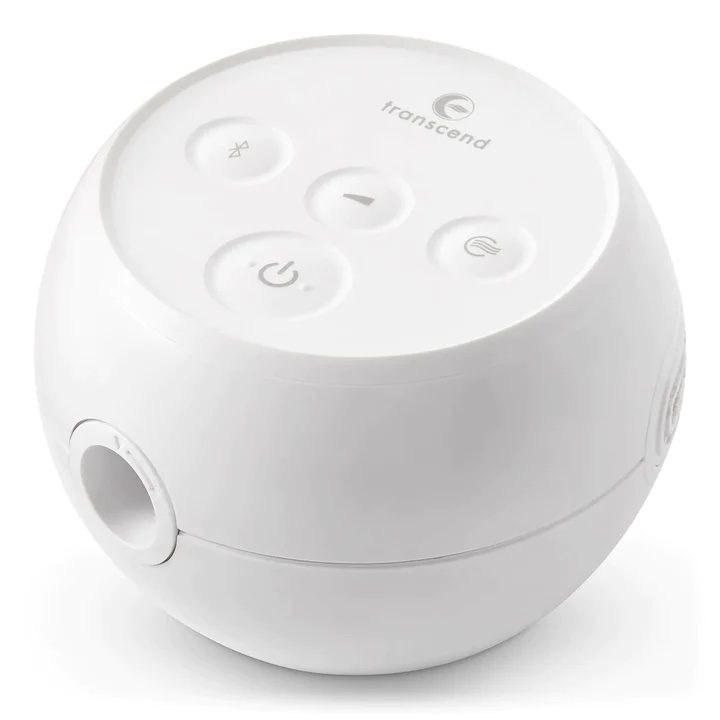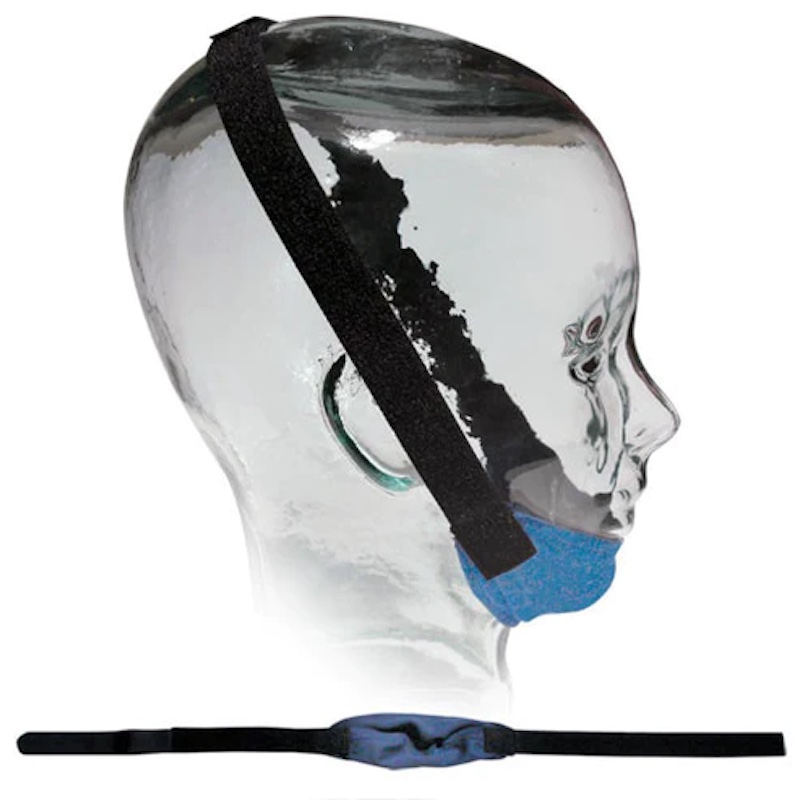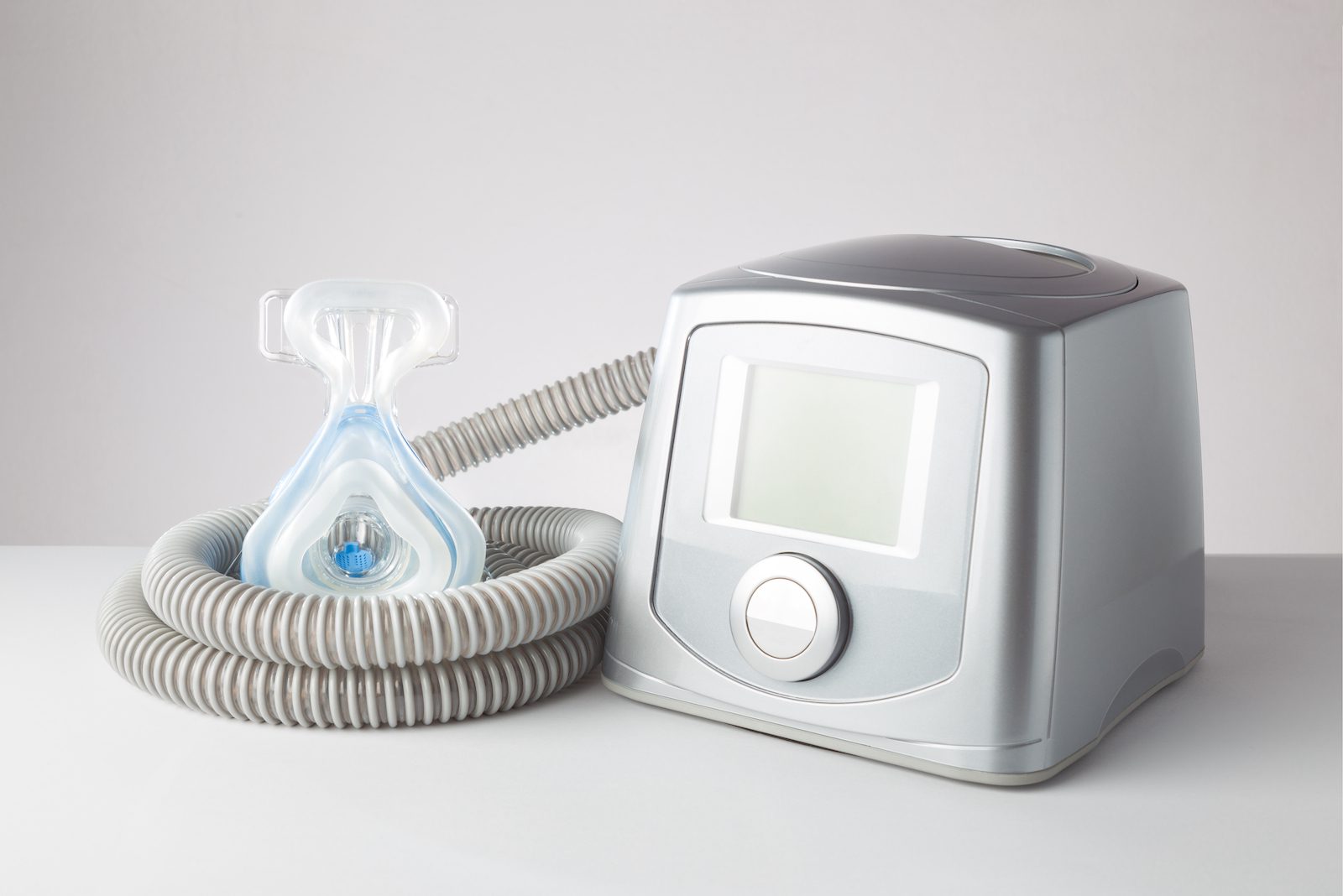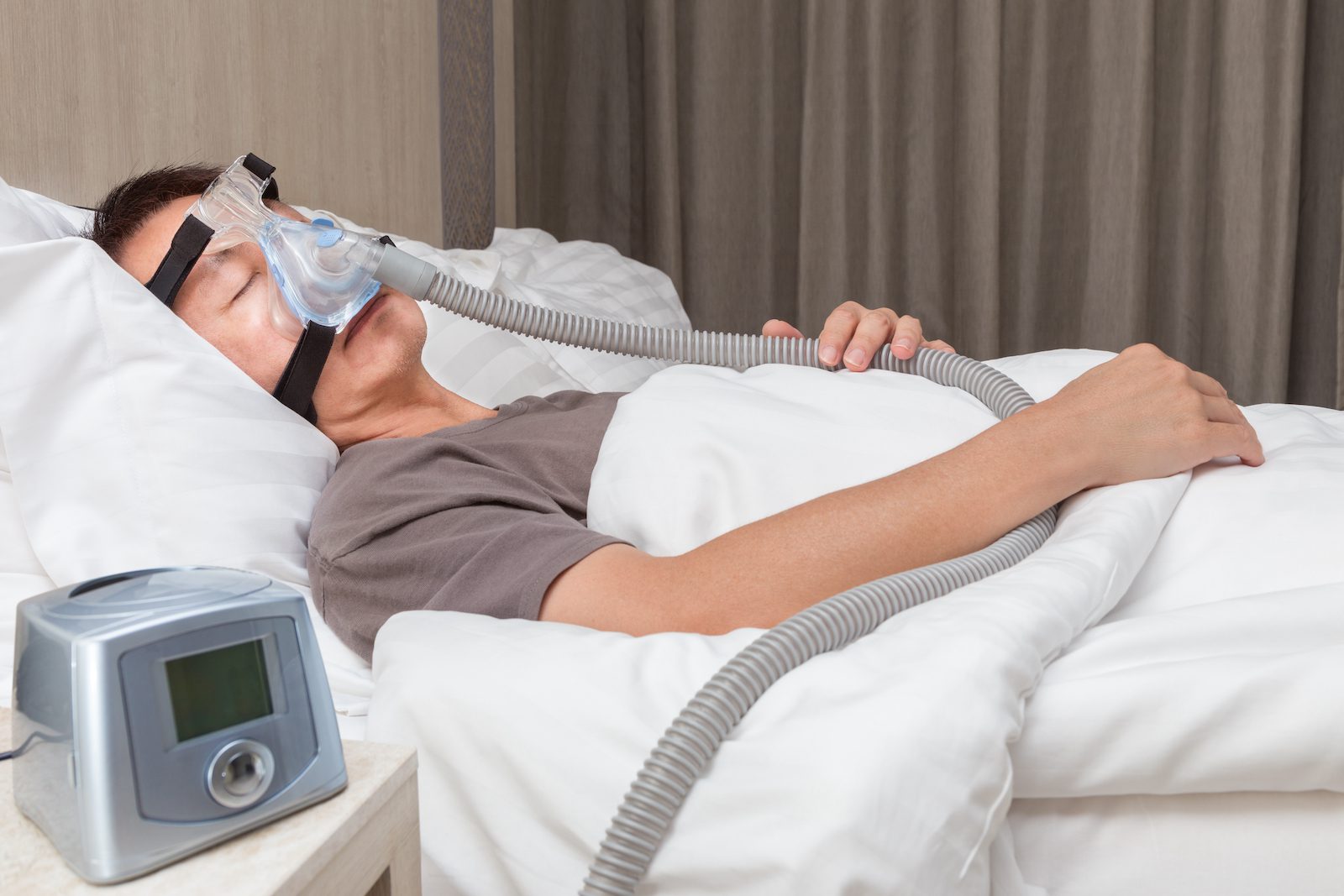Humidifiers can help make continuous positive airway pressure (CPAP) therapy more comfortable. There are a variety of things to consider when buying one, such as the benefits, different types, and how to care for a humidifier in order to keep it functioning properly. We’ll discuss what you need to know before purchasing a humidifier for your CPAP machine so you can be sure to choose the one that best suits your needs.
How a CPAP Humidifier Works
CPAP machines are often used to treat sleep apnea by delivering pressurized air that helps keep the individual’s airway open during sleep. However, this movement of dry air can cause irritation in the mouth and throat. A CPAP humidifier adds moisture to the air as it passes through a small water tank, which can make CPAP therapy more comfortable.
The Benefits of Using a CPAP Humidifier
The lack of moisture caused by CPAP machine use can produce side effects like dry mouth, nosebleeds, and nasal congestion. By adding moisture to the air, humidifiers can reduce a user’s chances of having these reactions.
What You Should Consider When Choosing a CPAP Humidifier
When choosing a CPAP humidifier, there are a variety of things to consider. Besides price and size, it’s vital to make sure the humidifier is compatible with your CPAP machine. You’ll also need to know whether the air is heated and how often you might need to replace parts.
CPAP Humidifier Considerations
| Price | The price of CPAP humidifiers varies depending on the retailer. Devices with built-in humidifiers include the cost of the humidifier in the overall price of the machine. Standalone humidifiers generally cost between $100 and $300. |
| Size | CPAP machines with built-in humidifiers aren’t much larger in size than devices that don’t have one. However, standalone and integrated humidifiers will require a little extra space on your nightstand. |
| Heated Reservoir or Hose | Heat can be added to the humidified air to make PAP therapy more comfortable. A heated tank warms the water directly, whereas a heated hose warms the air as it travels through the tubing. Heated tubing helps prevent condensation from forming, which is referred to as rainout. Either type of heating can be used individually or together. |
| Compatibility | With built-in humidifiers, compatibility isn’t an issue because the humidifier is part of the CPAP machine. Integrated humidifiers only work with the specific CPAP machine they are made to fit. Standalones usually function with several different types of CPAP machines. |
| Replacement Parts | It’s important to keep in mind the ease of changing out parts when selecting a humidifier. Most manufacturers recommend replacing the water chamber every six months due to regular wear and tear. When cleaning the humidifier, check all parts for damage or cracks. |
| Quality Materials | Most humidifiers are made from a combination of stainless steel, plastic, and silicone. Typically, a humidifier lasts two to five years with appropriate maintenance. |
Types of CPAP Humidifiers You Can Choose From
There are several types of CPAP humidifiers available on the market. Built-in humidifiers are part of the CPAP machine. Integrated and standalone humidifiers are separate devices that users connect to the CPAP machine. Each type has benefits and drawbacks.
Integrated CPAP Humidifier
Integrated CPAP humidifiers connect directly to a CPAP machine. The design means the device is only compatible with one machine. Given that it’s a separate device, the humidifier can easily be detached without impacting the ability to use the CPAP machine. This feature is helpful if a part needs to be replaced or if the user is traveling and doesn’t want to bring the humidifier. There is also the option to not use humidification if it isn’t needed year-round.
| Benefits: | You Shouldn’t Use One If: |
|---|---|
|
|
Built-In CPAP Humidifier
Built-in CPAP humidifiers are a permanent part of the CPAP machine. While the humidifier itself can’t be removed, the water chamber is usually detachable for easy cleaning. Because the humidifier isn’t a separate component, it doesn’t require a lot of extra space on your nightstand. However, if part of the humidifier breaks, the entire machine must be repaired or replaced. The device’s smaller surface area also means it might not offer as much humidity as an unattached humidifier.
| Benefits: | You Shouldn’t Use One If: |
|---|---|
|
|
Standalone CPAP Humidifier
Standalone CPAP humidifiers can connect to almost any CPAP machine, with the exception of machines that already have built-in or integrated humidifiers. Standalone humidifiers are larger than other types of humidifiers and require their own power cord, as well as a short piece of tubing so they can connect to the CPAP machine. As with integrated humidifiers, users can decide when they want to use a standalone humidifier.
| Benefits: | You Shouldn’t Use One If: |
|---|---|
|
|
Where Can You Buy a CPAP Humidifier?
CPAP humidifiers are available online or through your health care provider. Most doctors and clinics work with several durable medical equipment (DME) providers and can recommend a suitable humidifier for your needs. DMEs often have higher prices but provide in-depth support, which can be helpful if you’ve never purchased CPAP equipment before.
Online CPAP equipment retailers offer a more comprehensive selection and lower prices than DMEs. Many also have responsive support teams and free shipping, and some offer expedited shipping for an additional fee. General retailers sell CPAP equipment at lower prices but have limited support and less product variety.
Will Health Insurance or Medicare Cover the Cost of Your CPAP Humidifier?
Most private insurance companies cover some, or all, of the cost of a CPAP humidifier if it’s considered a medical necessity. To determine the exact requirements, reach out to your insurer. Medicare has similar rules but generally requires the user to cover roughly 20% of the device’s cost.
CPAP Humidifier Care and Maintenance
Just like a CPAP machine, a humidifier requires regular care and maintenance so it can function correctly.
How to Clean Your CPAP Humidifier
One of the most important aspects of taking care of a CPAP humidifier is to clean it regularly to prevent the growth of bacteria. Most manufacturers recommend daily cleaning.
Allow the machine and tubing to cool down completely before cleaning. Remove the tubing and water chamber and wash them in warm water with mild soap. While they’re drying, wipe down the device with a soft, damp cloth. As you’re cleaning, check each part for signs of damage or cracking. Make sure all the components are dry before reassembling. You may also want to disinfect the water chamber weekly with a mixture of vinegar and water.
Use Distilled Water in Your CPAP Humidifier
It’s best to use distilled water with a CPAP humidifier. Using tap water won’t necessarily harm the machine, but it can result in minerals and other deposits building up inside the device, leading it to work less effectively. Using distilled water can also help prevent bacteria growth in the water chamber.
How Often Should You Change the Water in Your CPAP Humidifier?
Most CPAP humidifier chambers hold enough water to last a single night, although it depends on your machine settings. Manufacturers recommend changing the water every night or every other night to reduce the development of bacteria.
CPAP Humidifiers
CPAP humidifier settings vary depending on individual needs. Some devices have manual settings, and others automatically adapt to the environment without needing user input. Either way, the goal is to achieve a humidity level that makes it easy to breathe without causing rainout.
Heating elements next to the chamber control water temperature. If your device uses a heated tube, the temperature is adjusted separately.
No, you don’t have to use a humidifier to operate a CPAP machine. A humidifier is just one option for making CPAP therapy more comfortable, especially for new users.
Some individuals choose not to use a humidifier because they don’t want to take care of another component. Others live in a humid environment, so they don’t need one. It’s also possible to use a humidifier while getting used to CPAP therapy and then choose to discontinue use when it no longer feels necessary.
Tap or bottled water shouldn’t be used in a CPAP humidifier because these can cause buildup of minerals and other deposits within the device. Distilled water is less likely to contain contaminants, which means using it can keep your humidifier working more effectively and for a longer period of time.
Essential oils and other aromatherapy products aren’t safe to use in a CPAP humidifier or anywhere else in a CPAP machine. Oil droplets will become aerosolized, making it easy to inhale them directly into the lungs. When a person inhales even a small amount of these oil droplets, their lungs can get irritated, resulting in breathing problems.
Still have questions?
Sleep apnea products can be confusing. If you need individualized assistance, send us an email at [email protected] with your questions and we'll help find the best fit for you.



